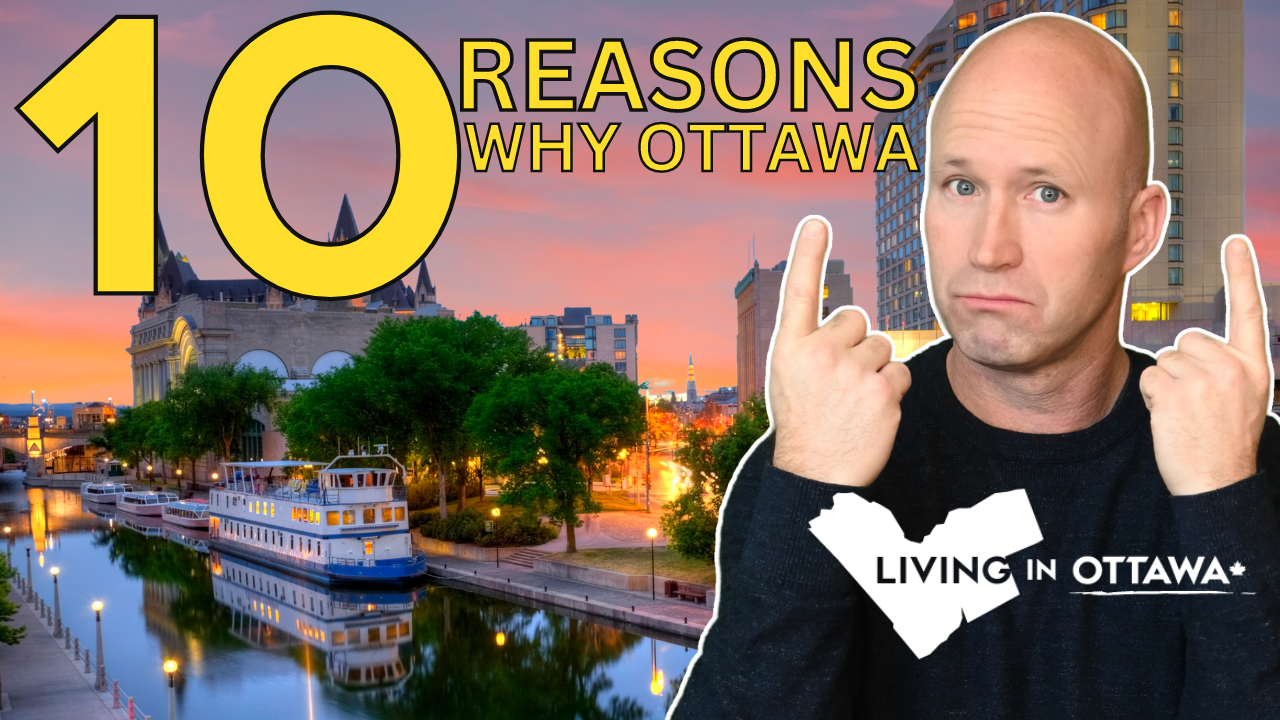Moving can be a daunting process; everything from packing up your belongings to finding new housing and settling into a new city. As daunting as it is, making the move to Ottawa has lots of benefits too! Not only is Ottawa Canada’s capital city, with plenty of cultural sites and entertainment opportunities, but it also has a wonderfully vibrant and welcoming community – no matter where you’re moving from you’ll feel at home in no time. So don’t fear the move; embrace all that the beautiful city of Ottawa has to offer!
Moving to a new place is one of life’s biggest challenges. If you’re planning on moving to Ottawa from another province, there are many possible obstacles and difficulties that could surface during the process. The biggest concern for most people is likely to be the cost; relocating within Canada can be expensive as it usually involves paying for things like mortgages, rental deposits, transportation, and other moving-related expenses.
Additionally, finding a place to live in Ottawa is especially challenging due to limited availability and high demand for housing in certain neighbourhoods. Adjusting to a new lifestyle can also be difficult; meeting new people, learning about different cultures, and navigating an unfamiliar setting can all lead to stress along the way. Another big concern for relocating families is finding the right school for their children. With so many options it can be overwhelming. Overall, taking on the challenge of moving to Ottawa from another province requires plenty of preparation and dedication — but it also offers unique opportunities for growth and discovery.
Find a settlement agency
Moving to Ottawa and not knowing where to start? Settlement agencies can help newcomers and refugees settle in Ontario with a variety of services including finding housing, jobs, childcare, among others. These services come at no cost and most agencies provide them in multiple languages across different communities in the province. Furthermore, many of these organizations also provide great programs for newcomer and refugee youth. With their help, moving to a new place doesn’t have to be as daunting or intimidating – they can assist you in making your transition smooth and stress-free.
The Government of Canada offers an extensive resource page on settling in Ontario with countless settlement agencies to make the transition smoother. This resource page is incredibly comprehensive with easily searchable database with full contact details for various settlement organizations. These organizations provide the right people who can make moving simpler with additional information and support that is tailored to your individual needs. We have left a link in the description below:
https://www.ontario.ca/page/getting-settled-ontario
Housing IN OTTAWA
If you’re moving to Ottawa, there are many different housing options available to you. Renting is a great option if you only plan to stay in the city for less than a year. Frequently, renting agreements allow you to move and change locations quickly, so it can be a great short-term solution. For those looking for something more permanent, or if moving to Ottawa is more than just temporary, buying property could be the better option financially and long term. However, if you need time before moving in permanently while you get settled in your new city and find your ideal place, there are also plenty of temporary housing options – from Airbnb rentals to extended stays in hotels – giving you some breathing room before moving into somewhere that is truly yours.
Rentals IN OTTAWA
If you’re moving to Ontario and you’re looking for rental housing, your search can begin with a simple internet search for 3rd party websites such as FaceBook Marketplace, Kijiji, Rentals.ca among others. You can also reach out to real estate agents that specialize in this sort of housing. In fact, we have a rental specialist on our team but just know that landlords can be very particular with who they rent and they often need LOE Letter of Employment, Pay Stubs confirming your steady income, potential tax returns, references, Canadian credit history is preferred and so on.
Another option is to search bulletin boards in various places such as grocery stores, libraries, laundromats, health clinics, thrift stores, or community centres. Many people may find it convenient to talk to family members or coworkers who may know of someone renting out something suitable. At an absolute minimum, once you decide to rent a place you must ensure you are signing a legally binding agreement and understand all the terms within it.
Moving to Ottawa involves more than just packing day-to-day items and moving in. If you decide to rent, there are additional steps that need to be taken. First, a rental application must be filled out and submitted to the landlord for consideration. If approved, you sign an agreement to lease – a legal agreement between you and your landlord that outlines things such as how much your rent will be and your rights and responsibilities. After signing the agreement to lease, you will then have to confirm all items into a Ontario Residential Lease Agreement. Lastly, a deposit is usually required in the form of a cheque or money order covering the cost of the first and last month’s rent.
Buying a Home IN OTTAWA
Buying a home in Ontario can be a great investment, and moving to Ottawa offers even more benefits. Potential home buyers have access to tax credits and rebates which could reduce the cost of purchasing a property. Additionally, having professional expertise on hand for advice is crucial for this major life decision. That’s why here at our company, we specialize in helping people buy and sell homes – so lean on us! We can seamlessly walk you through the process with our exclusive relocation tools that have helped hundreds of Ottawa home buyers relocate here. Feel free to reach out to us to learn more.
SchoolS IN OTTAWA
Attending school has become a fundamental right for all children in Ontario between the ages of six and eighteen. The government, in recognition of this right, provides free education to those who attend public schools. Anybody requiring more information on how to enroll their children can get in touch with their respective school board. If a particular private school is the one sought after by parents, then tuition fee might be involved. It is best to check with the respective school for answers on fees and related queries. Regardless of which option parents decide upon, children have the absolute right to pursue quality education in Ontario given the availability of public and private schooling systems.
In Ontario, publicly-funded education is divided into three stages. From kindergarten to Grade 8, students are typically enrolled in an English, French or Catholic school where they will learn the fundamentals of reading, writing, and math. Upon graduation from elementary school, students transition to secondary school – again English, French, and/or Catholic – in Grade 9 up until grade 12. During this time, the focus is on their interests as they prepare for graduation and what lies beyond. Finally, post-secondary instruction is available for college and university students of all ages. Financing one’s post-secondary education can be difficult; fortunately, there is the Ontario Student Assistance Program (OSAP) to help with grants and loans for tuition and textbooks.
Hey if this video is bringing you value and helping you in any way please help the US by clicking that like button to tell the YouTube algorithm we are doing a great job!
Enhance your linguistic skills by taking English and French classes as a second language.
Residents of Ontario have the opportunity to take advantage of free language training classes offered by school boards across the province. These classes cover a range of levels, including beginner, intermediate, and advanced and they are available at various times throughout the week – during the day, in the evenings, or on weekends. This enables learners to fit classes seamlessly into their existing schedules, making it easier than ever before to pick up a new language. The courses are tailored to meet the individual needs of each student and include contemporary language-learning materials that draw from real-life contexts.
With free classes available for permanent residents and protected persons, the Government of Canada provides language training programs that can help job seekers improve the language skills they need to succeed in the workplace. To get started, visitors should visit a language assessment centre near them to have their language skills assessed and learn what classes are available. Once assessments have taken place, individuals can then pleasure in the opportunity to broaden their fluency in a new language and utilize the advantages it brings with it through the Government of Canada’s language classes. We will leave a link in the description below to find out more about this opportunity.
https://www.ontario.ca/page/improve-your-english-and-french
Bank Accounts
Opening a bank account is an effective and secure way to manage your money. Even without an address, job or funds to deposit at the time of the opening, you can still open a bank account. All you need are two pieces of original identification, such as an ID or passport, proof of residence, and your Social Security number. Once you’ve got all that together, simply choose the type of account you would like to open and visit a local banking institution in person. There they will ask questions regarding your background and will assist with setting up your new account. It’s never been easier to protect your finances from loss or theft!
By opening a bank account, you are taking the right steps towards being fiscally responsible. Though it’s easy to open an account, remember to also request a checkbook as they may come in handy later for those big-ticket expenses such as putting a deposit down on a home or paying rent. Be aware of the various financial regulations that apply when dealing with banks. You can learn more about all things banking from the link in the video description below:
https://www.canada.ca/en/financial-consumer-agency/services/rights-responsibilities.html
Uncover the financial rewards of tax credits and benefits today!
Working and/or growing a business in Ontario can be an expensive endeavor, especially considering the taxes applied to certain services. Fortunately, these same taxes can also result in tax credits and benefits that serve to help offset costs associated with living and running a business. To get up to speed on what tax credits are available and what qualifies for them, it’s worth attending a free seminar from the Ontario government. These seminars discuss the details of the various tax credits, provide insight into how to apply for them, and offer information on where to turn if you need more guidance. Investing some time in understanding how these programs work can save you money while making sure that you’re compliant with all local laws. To access these services and for more detailed information we have left yet another handy link in the description below.
https://www.ontario.ca/page/taxes-and-benefits
Ontario Health Care
OHIP is Ontario’s health insurance plan, covering most medical and hospital services that Ontarians need. It ensures residents have access to quality healthcare services so they can stay healthy. OHIP also provides coverage for surgeries, doctor visits, lab tests, diagnostics, and other treatments that are deemed medically necessary by your primary care provider. Any medical service provided in Ontario provided by an authorized health professional and approved under the province’s Health Insurance Act are eligible for coverage.
Notably, OHIP doesn’t cover pharma care expenses (drugs used outside a hospital), dental care costs, ambulance services, or routine vision care. To help offset certain medical costs associated with these excluded services, the province provides additional programs such as the Trillium Drug Program and Ontario Seniors Dental Care program for those who qualify. OHIP is one of the most important services available to residents in Ontario and provides coverage for many medically necessary healthcare services – all at no cost. Applying for OHIP and obtaining a health card is easy, so make sure to take advantage of this valuable resource. To learn more about these programs make sure to visit the link in the video description.
https://www.ontario.ca/page/apply-ohip-and-get-health-card
Child Care IN OTTAWA
In Ontario, finding a suitable child care option for you and your family can be a daunting prospect. There are two types of child care available: licensed and unlicensed. Licensed child care centres are regulated by the government and as such can be costly options; however, they also come with added benefits, such as standards for health and safety, which make it a great choice for parents who want to ensure the best possible environment for their children. Unlicensed spaces are not regulated by the government and may offer less expensive rates but don’t necessarily come with the same assurances of safety or quality; it is important to do your research if you consider this option. With licensed spaces in particular, keep in mind that there may be waitlists so it’s crucial that you start looking early! In order to start the process of locating a child care service you can follow the link in the video description.
Ontario driver’s license
Switching to an Ontario driver’s license after living in another Canadian province, US state or international country can seem daunting. Luckily, residents of Ontario have 60 days to make the transition, giving individuals plenty of time to get their documentation in order. After the 60 days have passed, a valid Ontario driver’s license is mandatory for anyone who wishes to continue driving in the province. When applying for an Ontario driver’s license, it is important to come prepared with the appropriate documents such as proof of address and signature – requirements vary based on paperwork from other provinces and countries. Don’t wait until the last minute to switch over – get your application started with time remaining to forge ahead with peace of mind for the road ahead.
Luckily we have a handy link below for helping you get sorted on your new Ontario Driver’s License. It’s in the video description.
https://www.ontario.ca/page/exchange-out-province-drivers-licence
In light of the ongoing COVID-19 health crisis, some ServiceOntario centres have closed as part of preventative measures taken by the government. However, ServiceOntario still offers a variety of services to Ontarians via their Service Finder tool, which can help you find out when and where each service is available near you. If you are from out of province and purchasing a vehicle in Ontario, it’s important to note that proof of insurance from an Ontario provider is required when registering your vehicle.
Furthermore, it’s important to be aware of annual MTO initiatives such as Vehicle Emissions Testing for vehicles older than seven years and purchasing license plates with both plate fees (fixed cost) and sticker fees for one or two-year time frames. So whether you are a long-time Ontarian or visiting the province, checking in with ServiceOntario before making your next move will ensure your experience is somewhat stress-free.
Transportation IN OTTAWA
Public transportation is an important resource for many people in the province. Most cities and regions are well-connected with a range of transportation options. These include local and regional buses, services for persons with disabilities, trains, and private coach buses, as well as streetcars and subways in Toronto. Although using public transportation typically requires paying a fee, the cost can vary depending on your age, and where you’re traveling from and to your destination. For those without access to or unable to operate a car, these accessible options make travel much easier.
Moving to Ottawa from another province can be a thrilling experience full of new possibilities and opportunities. Ottawa is a medium-sized city with a small-town feel. With a stable job market in the Federal Government and High Tech and a variety of distinct neighbourhoods, each with its own unique flavour, Ottawa is certainly diverse. The locals are welcoming and friendly, making it easy for newcomers from other provinces to settle in quickly. Relocating to Ottawa offers a perfect chance to explore and immerse yourself in the bustling communities in Canada’s national capital.
Speaking of relocating if you are thinking about making a move to Ottawa feel free to reach out to us. Give us a call – shoot us a text – send us an email – or even wrap it in a bow and send it first class because we got your back when moving to Ottawa or anywhere across Canada. And each and every week we are bringing brand new videos just like this one so make sure to tap that subscribe button and click the bell so you are notified each and every time we drop a brand new video. Until next time – take care!




